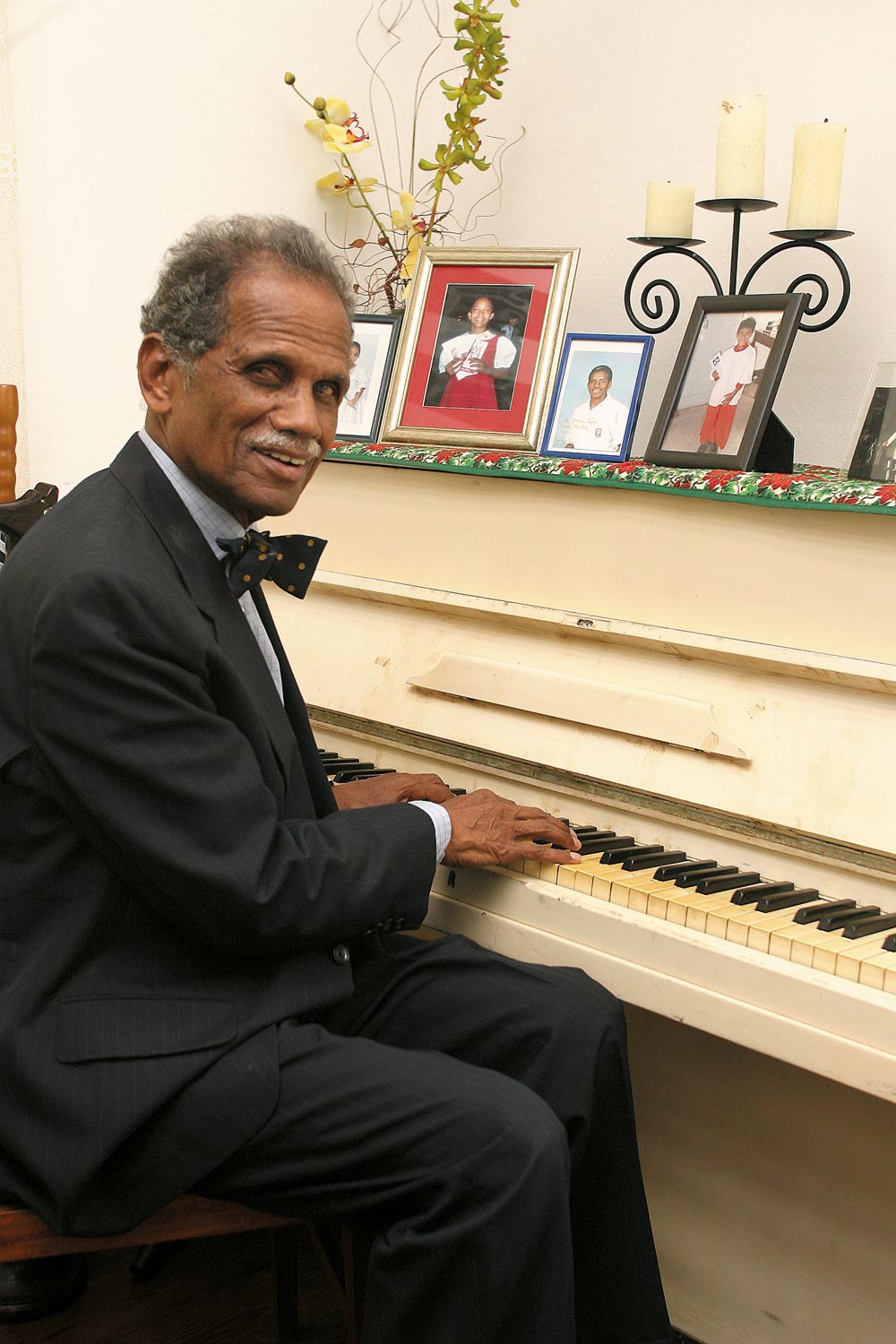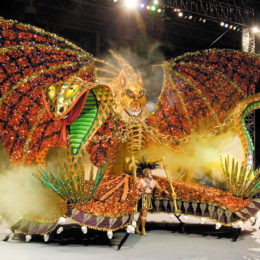It was in 1965, when I was living in Bassett Road, Notting Hill, just off Ladbroke Grove. A woman called Rhaune Laslett, a social worker, used to have a street fete for children and she asked me to play for the kids for free. It was a short street and she’d block it off and tie some buntings across. I agreed.
Sterling Betancourt, Ralph Cherrie and I were playing, walking up and down the street. People here say three people can’t play pan, that’s not a steelband, but in England people liked it.
At the street fete there were also a clown and a donkey cart. After a while the pan started to feel heavy around my neck, so I told the clown: “Let’s take a walk down the street.” We began to move and people joined us, all kinds of people who had gone shopping joined us with their bags, so we made a big circle before coming back to the fete.
We did that for a few years and the crowd got larger. People wore Martiniquan dress or any kind of simple costume they could find. This was around Easter and it was cold, you shivering in the street and your hands numb, so we transferred it to August, when it’s warmer.
I started playing pan when I first landed in England in 1951. I had come to study piano tuning, but I’d been a musician in Trinidad and within two weeks in England I got a job playing piano. Before the end of the first year I packed up the studies and began working full time as a musician, and since then that’s the only thing I’ve ever done.
By 1952 I had a band, which was the resident band at a smart nightclub in the heart of Piccadilly. We played six days a week.
Sterling Betancourt, who had come to England with Taspo (the Trinidad All Steel Percussion Orchestra) the same year as me, was on the drums; and Ralph or Max Cherrie played bass. As part of the show I would come off the piano and we would pick up pans, Sterling on the tenor, I on the second pan and Cherrie on the bass. At first we just did it for variety, but people liked it a lot and we were asked to play all over the country.
I knew pan from back in Trinidad too, although not as a player. In 1948 my quartet won a competition at the Woodbrook Stadium, and there was a pan competition too. Ulric Springer won a bicycle playing “The Loveliest Night of the Year”. He used to ask my advice on music. I played piano for Beryl McBurnie and she had Invaders play at the Little Carib [Theatre] also, so she would send Ellie Mannette, their captain, to me to get melodies right. I taught him “Tico Tico.” So I had an idea of pan before coming to England.
By the sixties I was doing well. We had played for the Queen. Pan was respectable in England and James Cummings, who I also knew from Trinidad, asked me to teach pan in a school in Croydon in 1970. He was a social worker and on the board of the school. That had never been done before. People donated pans and I started teaching.
My career is still going on. I still play solo (piano), a range from popular music, light jazz, Latin, but in the club it’s straight jazz. I’ve played for many calypsonians too, such as Growler, Lion and Pretender in Trinidad, but not Kitchener until I went to England, where I played with Fitzroy Coleman and Rupert Nurse.
Now I find the calypso rhythm boring; the melodies are beautiful, but I prefer the Latin rhythms. I like the great jazzmen, Oscar Peterson, Thelonious Monk, Keith Jarrett and of course Miles Davis and Duke Ellington, Count Basie. When I play solo piano it’s popular music, but in the 606 (club) it’s straight jazz. And I love Cuban music, that’s my music.
I’ve been doing that since the 1950s, and there aren’t many of us still around.
That’s what I got the MBE for last April (2006) at the Queen’s Birthday: for my contribution to music in the jazz clubs, for introducing pan in schools, and for Notting Hill.




















